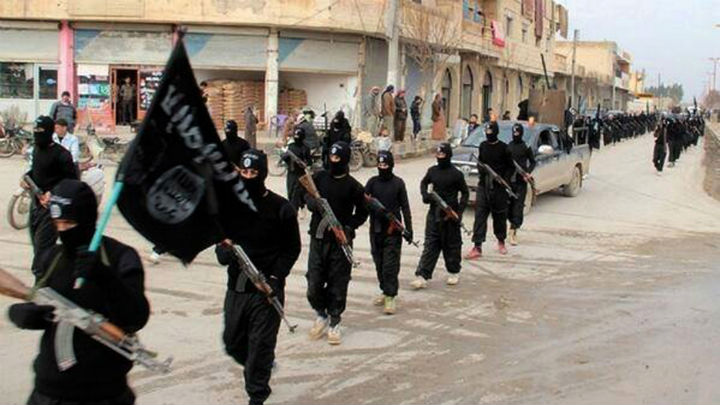ISIS uses phone contacts and Facebook accounts of captives to hunt down gay people “one by one.” That was the testimony of an Iraqi refugee who fled his country out fear of being executed by the terror group.

What’s just as troublesome is that the militant group gets “good credit” for killing them, in a society where “being gay means death,” he told the United Nations Security Council’s first ever discussion about the persecution of lesbian, gay, bisexual and transgender (LGBT) people.
READ MORE: Witness confirms ISIS destruction of ancient temple in Syria
ISIS, he said, is “trying to track down every gay man.
“And it’s like dominoes. If one goes, the others will be taken down too.”
But his life was at risk even before ISIS swept through vast areas of Iraq and began tracking gay men and executing them in public. Adnan was been targeted by gangs in the past and was “once beaten so severely that he could hardly walk,” U.S. Permanent Representative to the United Nations Samantha Power said in her prepared remarks at Monday’s meeting.
“This is the first time in history that the Council has held a meeting on the victimization of LGBT persons,” Power said. “It is the first time we are saying, in a single voice, that it is wrong to target people because of their sexual orientation and gender identity. It is a historic step.”
READ MORE: Happiness index ranks best and worst countries for gay men
Subhi Nahas called on the nations attending the landmark gathering — representatives from 13 of the 15 Security Council member nations attended, with Chad and Angola refusing to take part — to “do everything in your power to give sexual and gender minorities and other vulnerable refugees safe haven where they can again know security.”
READ MORE: US intelligence says hostage Kayla Mueller repeatedly raped by ISIS leader
Now living in the San Francisco area and working for the Organization for Refuge, Asylum and Migration, Nahas recounted how gays have been targets since the start of the civil war in 2011.
He was captured in 2012 after soldiers stopped the bus he was taking to his university.
“They took us to a secluded house where they assaulted us. They noticed my effeminacy and they mocked me, calling me faggot, sissy, and other profanities unworthy of this chamber. I feared that one of them —or all of them — would rape and kill me. You see, those who condemn us for being different are often the ones who brutalize us sexually.”
LGBT people in his home province of Idlib faced persecution from all sides — the government, opposition groups and terror groups like ISIS and the al Qaeda affiliate Jabhat al-Nusra — and there was little safety at home. Nahas still bears a scar on his chin from when his father learned he was gay.
Even when he fled Syria to Turkey, the threat of death followed him.
Adnan and Nahas survived, but the International Gay and Lesbian Human Rights Commission ISIS is alleged to have killed least 30 men since June 2014, when the group declared it had established a caliphate in parts of Iraq and Syria, as “punishment for sodomy or other crimes of ‘morality.'”




Comments